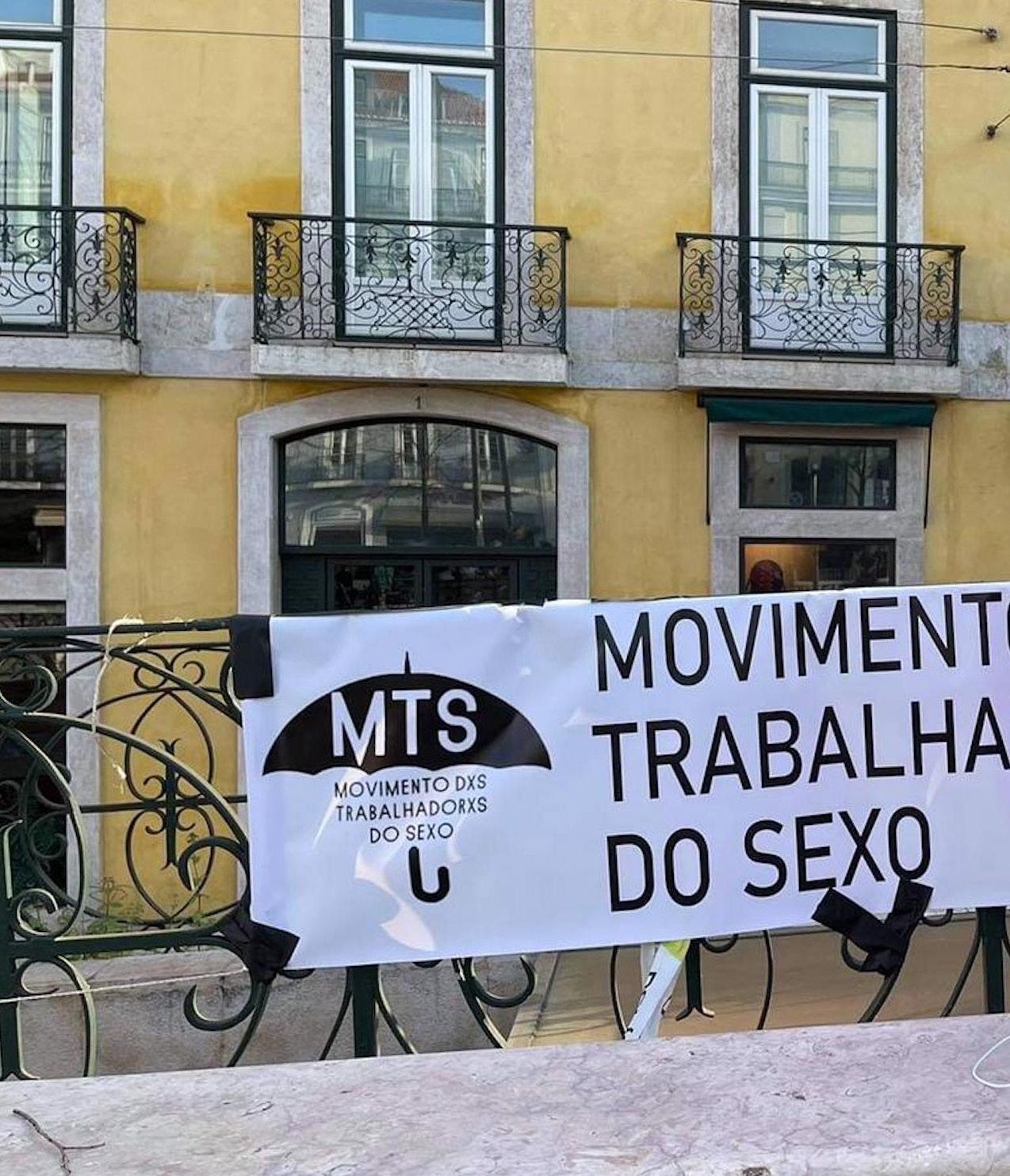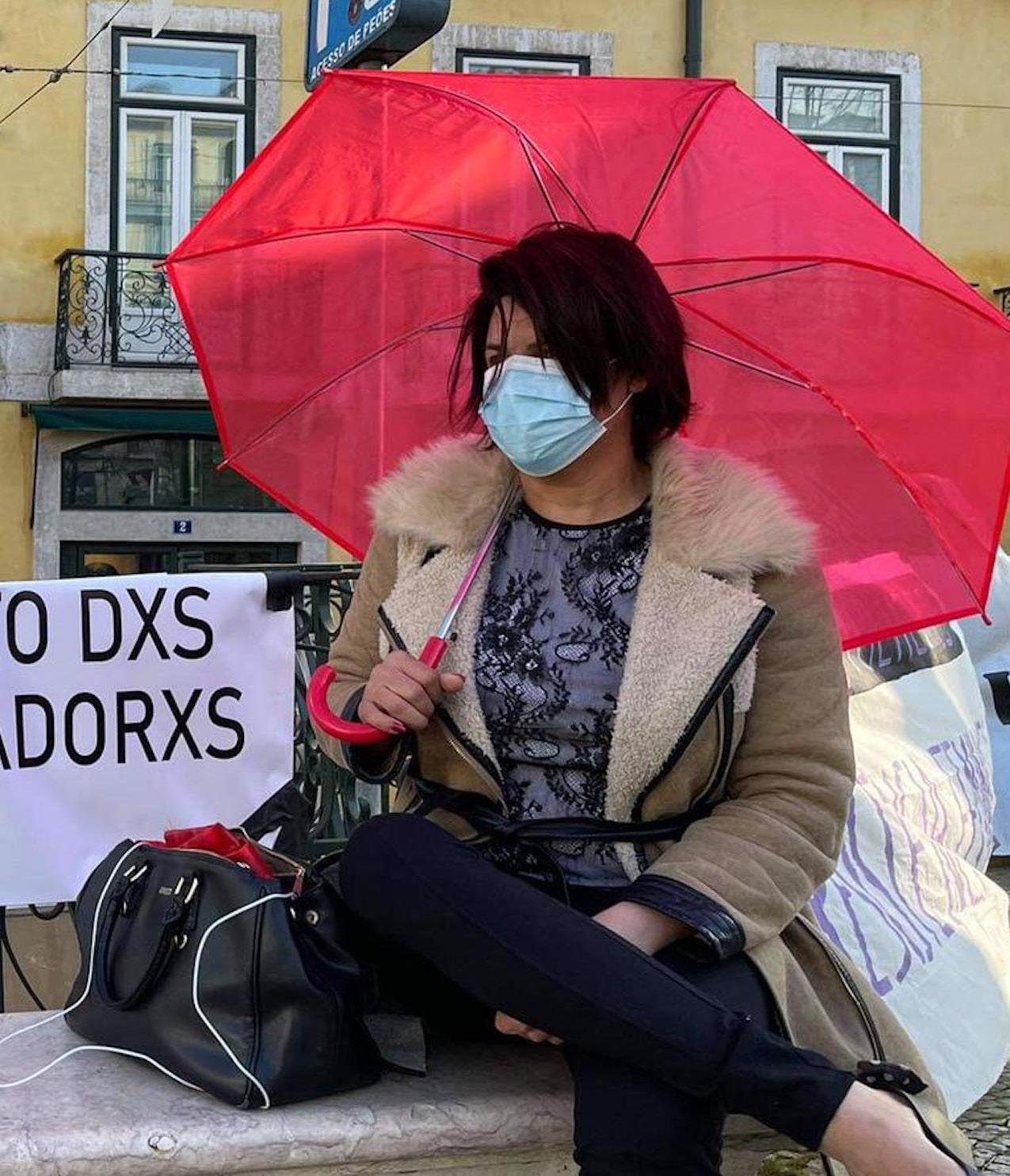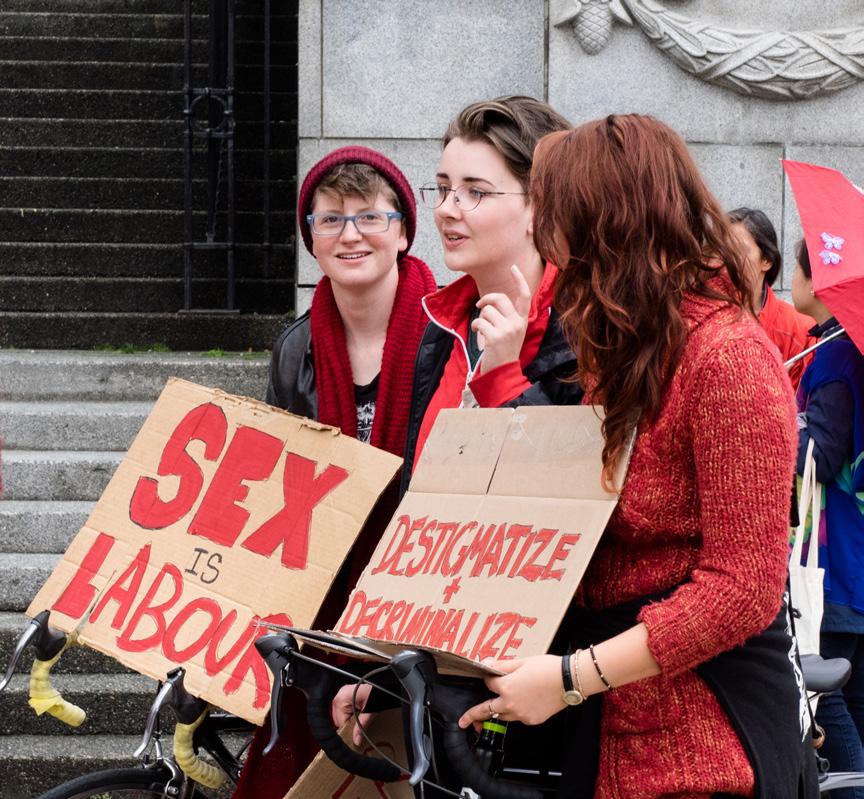
8 minute read
The Business of Selling Sex. How a Petition Splits the Portuguese Feminist Movement
JANUARY 2020: A PETITION WITH OVER 5000 SIGNATURES IS PRESENTED TO THE PORTUGUESE PARLIAMENT BY “SEX BUSINESSWOMAN” ANA LOUREIRO. IT AIMS TO LEGALIZE PROSTITUTION, PROPOSING ITS REGULATION AND STATUS AS “REAL” WORK—INCLUDING LABOUR AND FISCAL RIGHTS.
IT HAS RAISED CONCERNS FROM FEMINIST ASSOCIATIONS, INCLUDING OTHER SEX-WORKER LED MOVEMENTS, SCHOLARS AND POLITICAL PARTIES. THE PERSPECTIVE SPOKE WITH SÉRGIO, FROM SEX WORKERS’ MOVEMENT (MTS), AND DR. ALEXANDRA OLIVEIRA, AN EXPERT IN THE EUROPEAN CONTEXT OF SEX WORK, TO UNDERSTAND THE STAKES OF THIS
Advertisement
“Every day I practice a crime, and I will continue to do so until [prostitution] is legalized,” Ana Loureiro—the author of the petition—told RTP, the public broadcasting organization of Portugal. Selling sex itself is currently not illegal in Portugal, but facilitating such a transaction by others is a criminal offense—according to Article 169 of the Portuguese Penal Code, penalties reach up to eight years in prison. Ana Loureiro, sex worker and manager of a brothel in Campo Grande, Lisbon, has thus placed herself in an unusual position: calling herself a “sex businesswoman.” Publicly describing her business ventures alongside other women, Ana is admitting to being a criminal while simultaneously addressing the country’s highest legislative body.
“Facilitating” the selling of sex is not an easily defined legal term, and that means that not only “pimps,” but also a variety of other agents end up being labelled as criminals. According to Sérgio from Sex Worker’s Movement (MTS), a grassroots sex-worker led association, Article 169 “makes us [sex workers], or people in our lives, criminals, preventing us from working together.” This is because “facilitating sex work” can be interpreted in multiple ways, from being security guards, drivers, landlords or coworkers of sex workers, thus potentially criminalizing their whole support network. As a result—despite selling sex not being illegal—sex workers are, according to Sérgio, currently unable to ask the police for protection and justice when they experience violence, as “it could be [them] on trial.”

Sex Workers' Movement banner on InternationalWoman's Day in Lisbon, Portugal on 8 March.
© MTS

The red umbrella is the symbol of the global sex workers’ rights movement. Here during Red Umbrella March for Sex Work Solidarity on Saturday, June 11, 2016 in Vancouver, Canada.
© Saly T. Buck/Flickr
The regulation of prostitution as a site of concern for public health and moral has, similarly to other European countries, meant being legally regulated in Portugal from 1853 onwards. In 1858, prostitutes were first made to register with the police, with the purpose of hygienizing society rather than give these women social rights, according to Women’s Union Alternative and Response (União de Mulheres Alternativa e Resposta—UMAR), a Portuguese women’s association. In 1963, this climate of moderate tolerance ended, with restrictive measures attempting to erradicate sex work by prohibiting it, having little practical effect as the business simply moved underground. After the democratic revolution of 1974, prostitutes started to be regarded as victims in need of protection rather than criminals, which, to this date, is the logic of the legal framework.
Continuing this turbulent history, the petition proposed by Loureiro intends to advance the rights of sex workers and calls for the legalization of facilitating sex work—as long as any form of coercion or abuse in the business remain criminalized. If legalized as a business, workers would be able to pay taxes and receive the corresponding social benefits, such as sick leave, fixed salaries and other contractual benefits. It also calls for regulating controversial aspects of the work, such as establishing mandatory periodical medical exams, raising the age of consent for engaging in sex work to 21 years old and criminalizing the activities of illegal residents. This, according to Dr. Alexandra Oliveira—lead researcher of the study “Less equal than others” about sex workers’ rights and advocacy in Europe—is more reminiscent of the nineteenth century than it is actually progressive for sex worker’s rights.
This proposal was discussed at a Parliament hearing on June 4, 2020 and is now under review—with several associations having issued statements on their disagreement to it. This debate on sex work laws is not new—not in Portugal or elsewhere. In a webinar on the connection between human trafficking and sex work, Sandra Benfica from the Portuguese women’s association Democratic Women’s Movement (Movimento Democrático de Mulheres—MDM) stated that since 2008, the discourse has resurfaced cyclically in the media and the political sphere. The study led by Dr. Alexandra Oliveira found that European countries have been moving towards increased state control of prostitution—contrary to this petition’s aim of depenalizing the activity— by regulating it administratively, rather than criminally. The tendency in Europe, Dr. Alexandra Oliveira continues, has been towards neo-abolitionist models that criminalize the purchase of sex, one that started in Sweden, in 1999, and spread to Norway, Iceland, France and Ireland.
Is It a Crime? No Simple “Yes or No”
The complicated maze of legal approaches to sex work is worth untangling first. According to the Global Network of Sex Work Projects (NSWP)’s Briefing Paper on Sex Work and the Law, the three main legal models of sex work are criminalization, legalization and decriminalization. NSWP has, among these three main models, identified twelve variants that exist across the globe—showing how there are no two similar countries in this respect. It has also advocated for improving legislation on other issues—such as trafficking, migration and non-discrimation—which further impact people engaged in sex work by forging a mosaic of interlocking legal frameworks.
Criminalization means that all (or some) of the agents involved—the client, the prostitute, the pimp, among others—commit a crime. Legalization—the model implemented in Greece, Germany and the Netherlands—means that, while sex work and surrounding activities are not a crime, they ought to follow certain regulations. At last, decriminalization, so far exclusively implemented in New Zealand back in 2003, means selling sex is neither a crime nor bound to specific regulations, fostering self-organizing of workers and providing them general labourrights. It has been supported by international organizations, such as UN Women, Human Rights Watch and Amnesty International, as well as anti- -trafficking organizations, such as La Strada International.
Dr. Alexandra Oliveira to THE PERSPECTIVE
The Great Feminist Split
Several Portuguese feminist associations are standing against this petition, but not in unison—they have increasingly irreconcilable positions on the way to transform sex work legislation, mirroring the polarization in other countries and the global feminist movement. The stakes seem to be getting higher: this year, the divergence of feminist positions on the future of sex work, and on how the law ought to regulate it, had a dramatic effect. International Worker Woman’s day in Portugal is coordinated by the network 8M, that organizes a national strike and dynamises preparatory events throughout the year. Because of the topic of sex work and—to a lesser extent, trans rights—for the first time in the country’s history, the network was split into two organizing committees, according to a Público newspaper’s report.
On the one hand, associations such as Portuguese Platform for Women’s Rights’ (Plataforma Portuguesa para os Direitos das Mulheres—PPdM) and Democratic Women’s Movement (MDM) believe in the need to abolish sex work through a neo-abolitionist model, such as the Swedish one, by criminalizing the purchase of sex. This long tradition of feminist abolitionism, originating in the International Abolitionist Federation created in 1875, in Liverpool, believes that sex work is inherently exploitative—with MDM labelling it “a form of slavery” and “a striking expression of violence against women” on their website.
In a statement regarding the petition addressed to the Parliament, PPdM also claims that the petition violates the Portuguese Constitution by breaching international conventions that the state parties to, such as the Council of Europe’s Istanbul Convention and the UN Convention on the Elimination of All Forms of Discrimination Against Women. What is violated concretely, in their opinion, is the state’s need to prevent all practices based on a social understanding of women as inferior, meaning they consider sex work to perpetuate gender-based violence.
On the other hand, associations such as Sex Workers’ Movement (Movimento dos Trabalhadores do Sexo—MTS) and UMAR, as well as scholars such as Dr. Alexandra Oliveira, oppose the petition, as they believe that decriminalization—and not abolition through the criminalization of purchasing sex— is best suited for ensuring labour rights, security and human rights of those involved. Sérgio from MTS explains that
This, they believe, is a crucial failure of this petition, as by discriminating migrant workers, proposing they are not included in the protection of the law, it legitimizes their deportation and criminalization. Privileging bigger brothels instead of autonomous, small-scale and street sex work and supporting the control and the policing of these establishments are other concerns expressed by the movement.
Dr. Alexandra Oliveira has similarly supported the petition’s quest for sex workers’ rights, but critized its “hygienist vision” and xenophobic aspects that exclude migrant women from legal protection. She stated that “The author of the petition is seeking a sanitizing regulation characteristic of the nineteenth century.” Sex Workers’ Movement agrees that these control measures foster discrimination, penalize those who are unwilling—or unable—to register and stigmatize sex workers as a “public health problem,” as they so many times throughout history have been.
A Way Out of the Maze
Regardless of legal regime, different stakeholders agree that strengthening exit strategies for those engaged in sex work is important. While some NGOs, such as O Ninho (The Nest) or Ergue-te (Raise Yourself Up) help people leave sex work, no state-led initiative exists. A bill proposed by the independent MP Cristina Rodrigues and supported by PPdM has recently been approved in the Parliament—and it aims to create the first pilot-program of such kind.
This holistic project will cover several cities and provide medical, psychological and sexual health services, as well as addiction treatment and legal counselling.
Few will disagree that precarity, violence, social stigma and discrimination are the everyday reality of sex workers’ lives across the globe. In an attempt to put an end to these, the feminist movement in Portugal—and beyond—has ruptured important ties and put solidarity at risk. It remains to be seen whether the law will be changed due to this petition—or the responses to it. It is equally uncertain whether the new pilot-project will bring any effective repercussions to an issue historically characterized by elusiveness, resistance to legal control and underground nature. In the midst of the uncertainty, sex workers are there, as always, navigating the maze, fighting to see their human rights respected and to live in a violence-free world.
JULIANA SENRA

July 7, 2012, Paris, France. Protest against plans of penalizing sex work clients.
© Yann Beauson/Flickr










